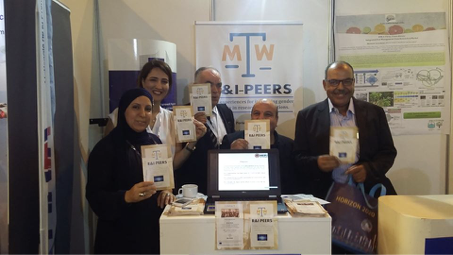The National Agency for the Promotion of Scientific Research (ANPR) of Tunisia is a public agency under supervision of The Ministry of Higher Education and Scientific Research. Its primary mission is providing services to professionalize the management of research activities in partnership with effective and equitable socio-economic operators. It plays a crucial role in interfacing with and supporting research organization in the valorization process of research results and technology transfer. As a Research Funding Organization (RFO), ANPR works in a national context, which recognizes the important historic place occupied by women in society in general, and in the field of science in particular.

Tunisia has always been considered as one of the most advanced Arab countries in terms of women’s rights, thanks to a family code promulgated in 1956, followed by the amendment of the labor codes, the penal code and nationality. These legal regulations have strengthened the rights of women in Tunisia.
March 1, 2018 marked the formal adoption of the Gender Equality Plan (GEP) by ANPR, which represents a fundamental action of R&I PEERS project and a key tool for encouraging the improvement of gender balance in ANPR, in its capacity as a Tunisian piloting partner in the project.
The ANPR GEP covers the following six target areas:
- Mentoring
- Raising awareness of gender bias in decision-making bodies
- Raising awareness of importance of gender perspective in research content and curricula and promoting female academics ’research
- Improving gender-sensitive language in ANPR’s documents
- Work-life balance
- Raising awareness of gender equality
In the framework of the GEP implementation, ANPR has carried out awareness-raising actions by organizing workshops and training for the benefit of key actors, including mentors, decision-makers, et al. ANPR promotes awareness of the role of women in the R&I ecosystem and showcases achievements of female Tunisian researchers through participation in several national and international events. This latter includes hosting a desk for the RI-PEERS project as part of an exhibition on Horizon 2020 projects at the 9-10 September 2019 high-level conference on “Tunisian-European Science and Innovation Days” [TESI], jointly organized by the Tunisian Ministry of Higher Education and Scientific Research (MESRS), European Commission Directorate General for Research and Innovation of the European Commission (DG RTD), and the Delegation of the European Union (DUE) in Tunisia.

ANPR also participated in the January 2020 international Information Day on Horizon 2020 Calls within the H2020 “Science With and For Society” (SWAFS) Work Programme, by providing testimony on the RI-PEERS project and underlining the importance of the gender dimension in research organizations. Leveraging modern communication tools, ANPR also moderates a dedicated Facebook Group promoting “Success Stories of Tunisian Females in Research and Innovation”.
A community for equal opportunity has also been established that provides a space for discussion and reflection around gender issues in the R&I ecosystem. Thanks to the period of general confinement during the COVID-19 pandemic, ANPR was able to experiment with remote work as an alternative favoring work-life balance, as provided for in the GEP, despite the legal limits of its adoption for public officials. The evaluation of this mode of work is in progress .

Other activities that are planned for implementation by the end of the R&I PEERS project include the following:
- Regular training sessions for early career researchers;
- Awarding of the Women in Science Excellence Prize; and
- Establishing channels to report anonymously disrespectful behavior, abuse and sexual harassment.
The GEP is an innovation in the practices of Tunisian public administration in general, and in the Ministry of Higher Education and Scientific Research institutions in particular. Its implementation raises many challenges that can inspire other structures within the same ministry and far beyond!

